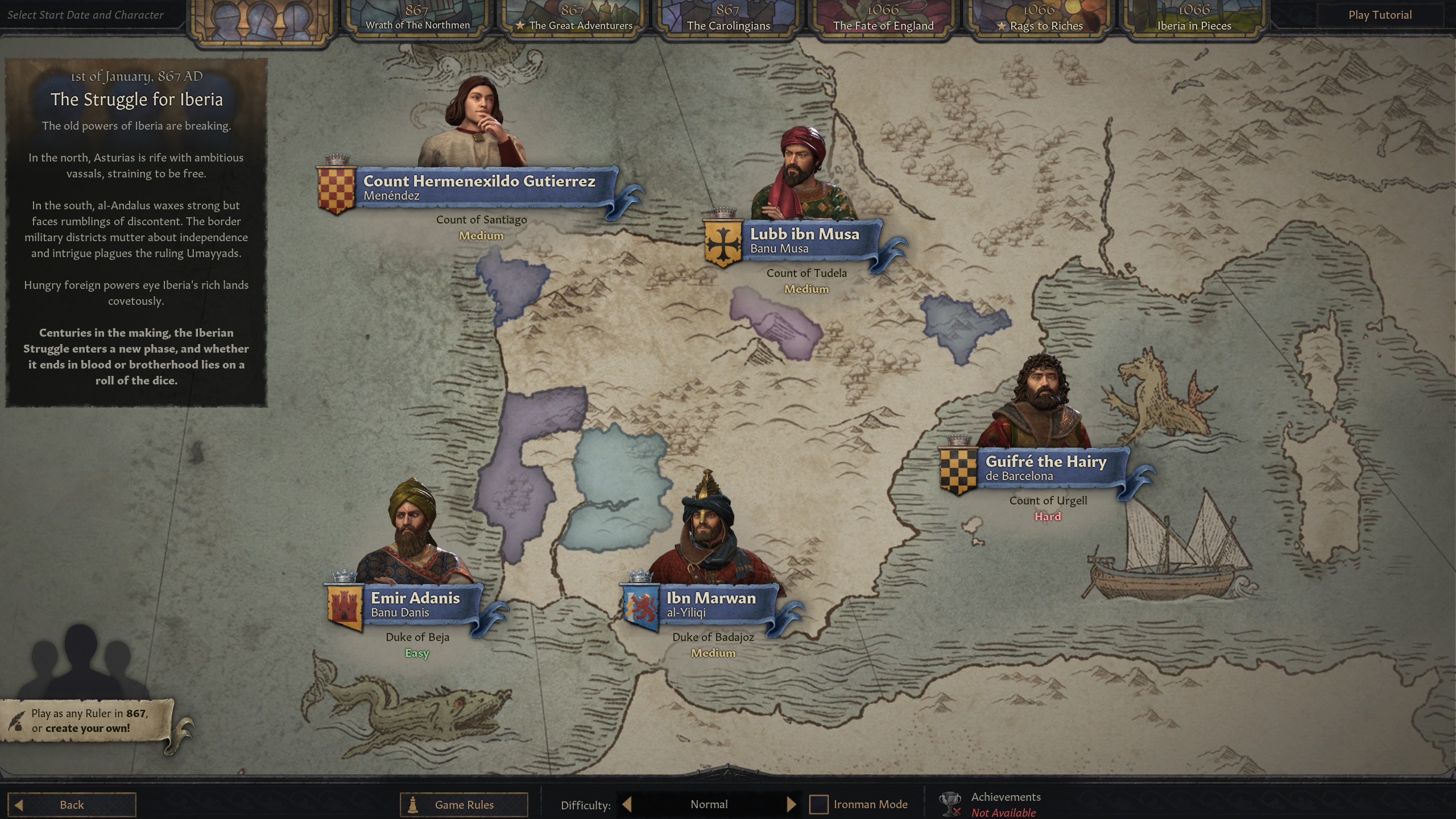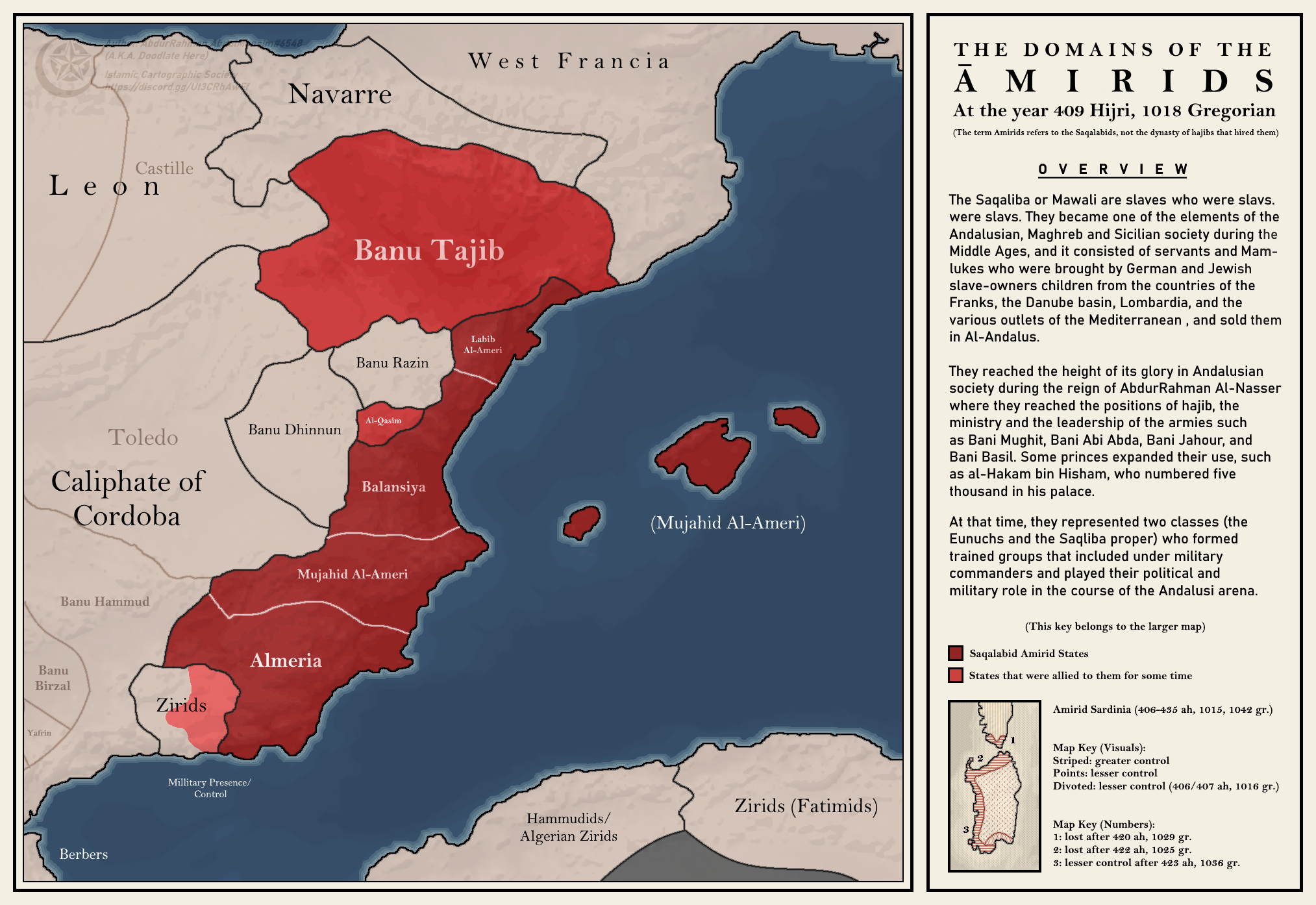Greetings!
Winter is slowly fading behind us (at least in the northern hemisphere), and spring is starting to take over. A new season calls for an announcement. I’m happy to present you with our next Flavor Pack: Fate of Iberia, due to be released on the 31st of May! We are obviously talking about Mediterranean Iberia, not the former Kingdom in Georgia.
In addition to being one of the most played regions, the Iberian peninsula is interesting because of the complexity of the geopolitical situation, and the richness of the events occurring during the time period of Crusader Kings 3. It gives us a good opportunity to bring more flavor for both the Christians and Muslims living there.
With this new flavor pack, we want to offer you the opportunity to truly decide the fate of the whole peninsula, either by reenacting history or creating an alternative that pleases you more. In order to model the complexity of the situation, we are introducing a new system, the Struggle. It will be changing the rules and increasing the challenge for the rulers within the Iberian peninsula. You can have an idea of how the game will be affected in the screenshot below. The effects will vary a lot depending on the stage of the struggle, but we will go into details in the next dev diary

The Struggle will both create new opportunities and add constraints for the rulers within Iberia.
A new 867 bookmark features a revamped Iberian cast of characters, giving players the perfect place to jump in and deflect history as they see fit. The Struggle will persist into the 1066 start date as well. The bookmark lets you choose between different vassals, either from the Christian Kingdoms, or Al-Andalus. Each of them offers different starting challenges and choices.. For instance, in the south, Emir Adanis and Ibn Marwan are both Dukes under the Sultanate of Al-Andalus. But they also are neighbors and rivals. Starting with one of them will certainly imply crossing swords and scheming against the other.
 The new 867 bookmark will be available for everyone, while being more interesting to experience if you own Fate of Iberia
The new 867 bookmark will be available for everyone, while being more interesting to experience if you own Fate of Iberia
We also seized the opportunity to update the map, refining the county and duchy divisions, as well as the cultures and faiths. This means the stage is more accurately set for the start of our game.

We mostly focused on the Northern part of the region.

The new culture set up for the year 867

The new faith set up for the year 867
You might have noticed the addition of the Mozarabic faith, but again, we will detail that in a future dev diary, along with the rest of the content you can expect from a Flavor Pack!
We are excited to go into the details and share all of this with you in the coming weeks! Until then, I wish you a lovely day and enjoy the trailer!
Cheers,
P.S.: While we do not expect the save versions to be incompatible, please make sure you wrap up your previous playthrough to ensure a seamless transition. If you encounter issues, you can of course roll these saves back to a previous version UNLESS you are playing in Ironman.
Winter is slowly fading behind us (at least in the northern hemisphere), and spring is starting to take over. A new season calls for an announcement. I’m happy to present you with our next Flavor Pack: Fate of Iberia, due to be released on the 31st of May! We are obviously talking about Mediterranean Iberia, not the former Kingdom in Georgia.
In addition to being one of the most played regions, the Iberian peninsula is interesting because of the complexity of the geopolitical situation, and the richness of the events occurring during the time period of Crusader Kings 3. It gives us a good opportunity to bring more flavor for both the Christians and Muslims living there.
With this new flavor pack, we want to offer you the opportunity to truly decide the fate of the whole peninsula, either by reenacting history or creating an alternative that pleases you more. In order to model the complexity of the situation, we are introducing a new system, the Struggle. It will be changing the rules and increasing the challenge for the rulers within the Iberian peninsula. You can have an idea of how the game will be affected in the screenshot below. The effects will vary a lot depending on the stage of the struggle, but we will go into details in the next dev diary

The Struggle will both create new opportunities and add constraints for the rulers within Iberia.
A new 867 bookmark features a revamped Iberian cast of characters, giving players the perfect place to jump in and deflect history as they see fit. The Struggle will persist into the 1066 start date as well. The bookmark lets you choose between different vassals, either from the Christian Kingdoms, or Al-Andalus. Each of them offers different starting challenges and choices.. For instance, in the south, Emir Adanis and Ibn Marwan are both Dukes under the Sultanate of Al-Andalus. But they also are neighbors and rivals. Starting with one of them will certainly imply crossing swords and scheming against the other.

We also seized the opportunity to update the map, refining the county and duchy divisions, as well as the cultures and faiths. This means the stage is more accurately set for the start of our game.

We mostly focused on the Northern part of the region.

The new culture set up for the year 867

The new faith set up for the year 867
You might have noticed the addition of the Mozarabic faith, but again, we will detail that in a future dev diary, along with the rest of the content you can expect from a Flavor Pack!
We are excited to go into the details and share all of this with you in the coming weeks! Until then, I wish you a lovely day and enjoy the trailer!
Cheers,
P.S.: While we do not expect the save versions to be incompatible, please make sure you wrap up your previous playthrough to ensure a seamless transition. If you encounter issues, you can of course roll these saves back to a previous version UNLESS you are playing in Ironman.



